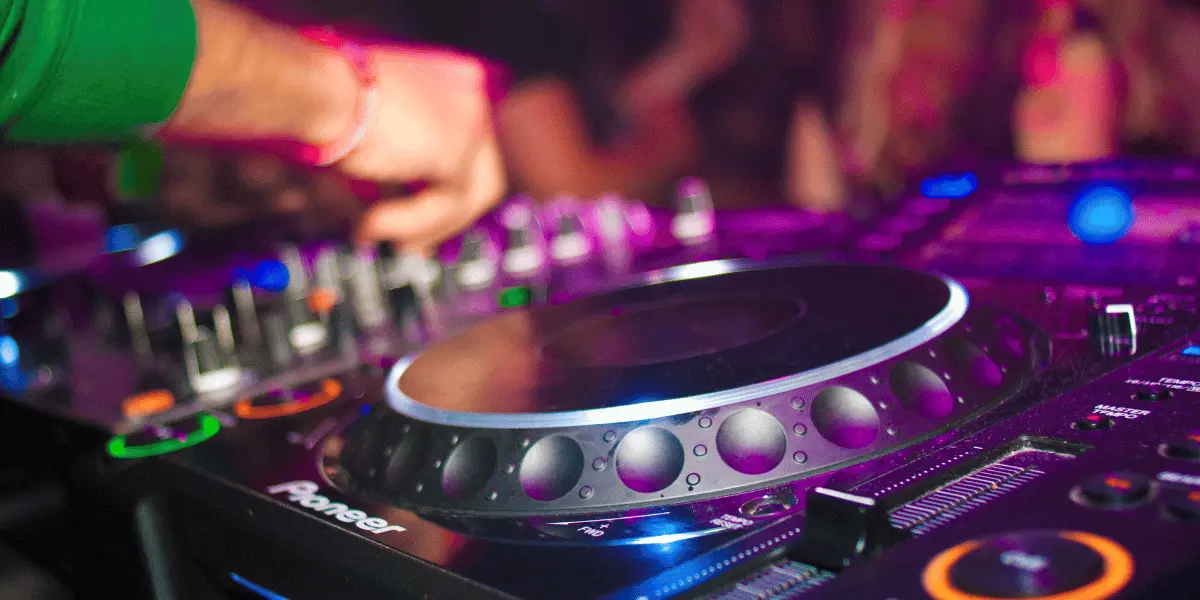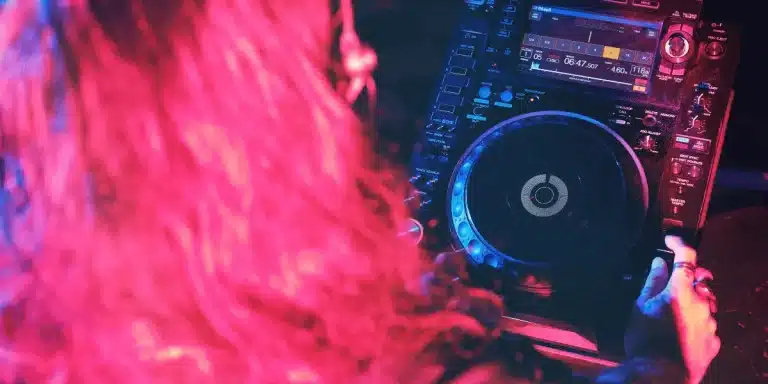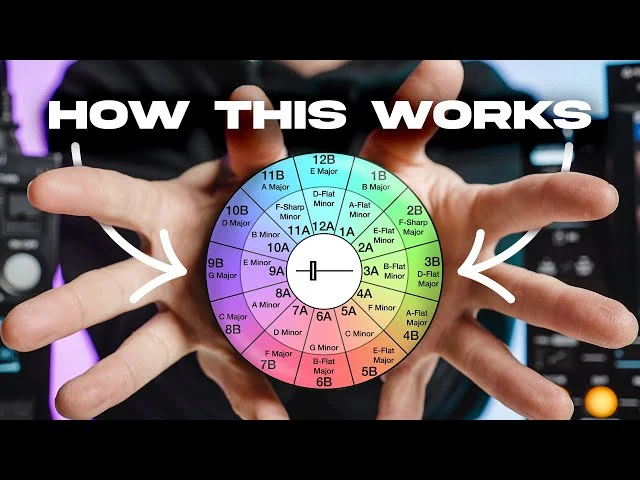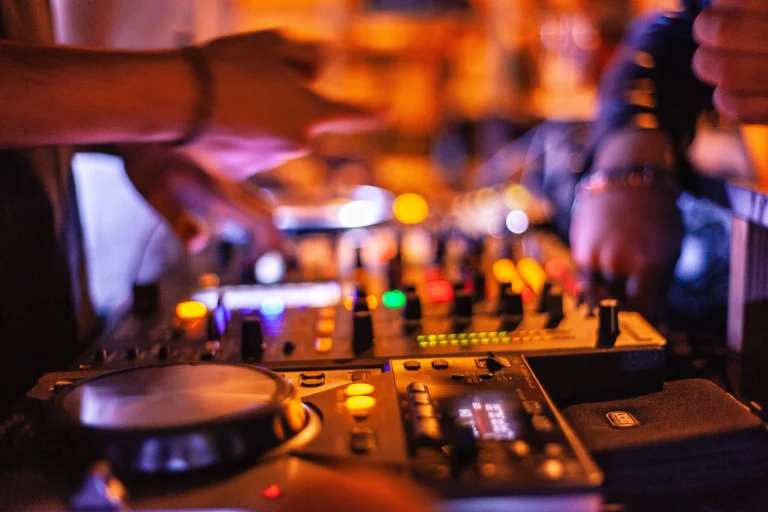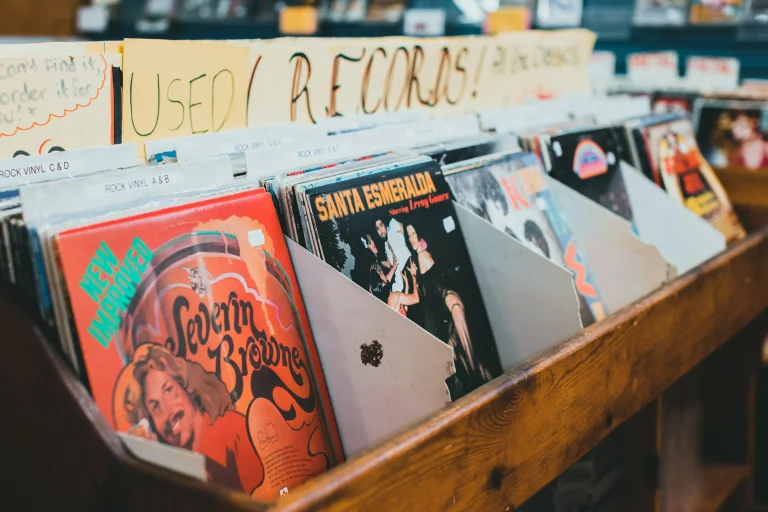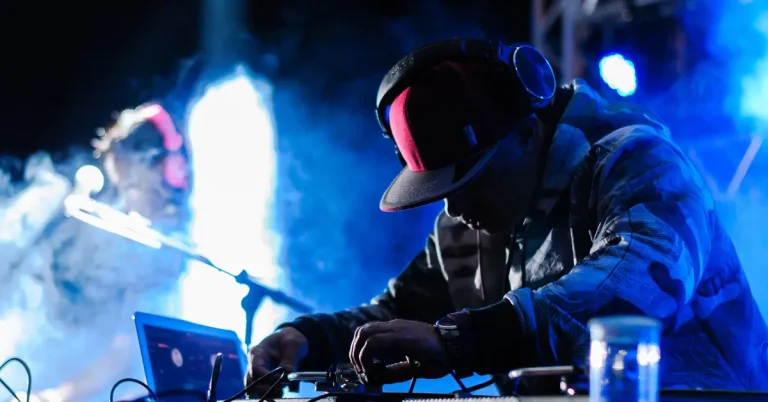How to Become an EDM DJ? A Complete DJ Guide 2024
To know how to become an EDM DJ, you will need to have a passion for music and a strong desire to learn electronic music and improve your skills. Building a brand can help you establish yourself to become an EDM DJ. You can create a logo, website and social media page to showcase your brand. Also collaborating with the other DJs and producers can help you learn new skills and expand your network. You can attend local events, meet other DJs and producers or connect with them online through social media or music forums.
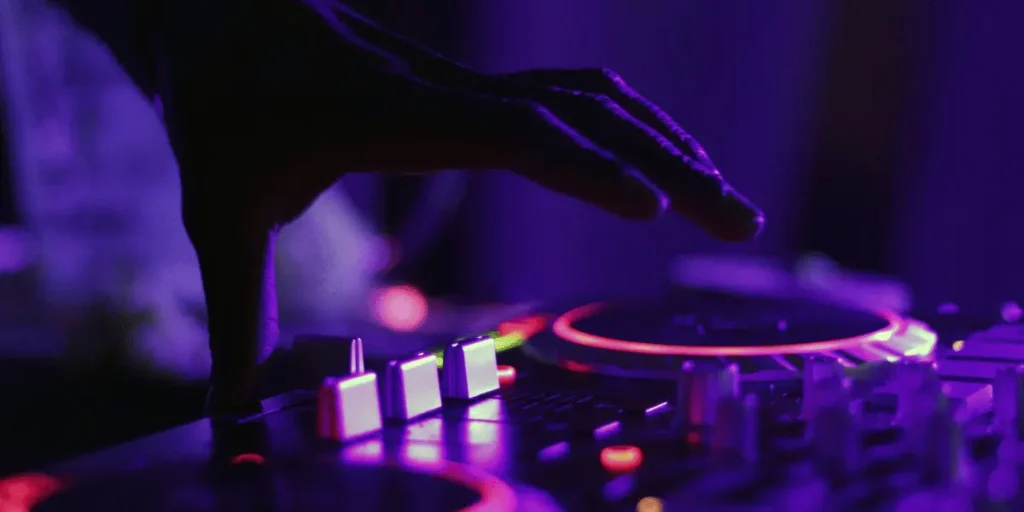
Becoming a successful EDM DJ takes time and persistence. You need to be willing to put in the time and effort to develop your skills, build your music library and promote your music. You may face rejection or setbacks along the way but it’s important to stay focused on your goals and keep pushing forward. As you know, EDM is a constantly evolving genre, so it’s important to stay up-to-date with the latest trends and music styles. You can do this by attending EDM events and festivals, listening to new music and collaborating with other artists. In this article we tell you in detail how to become an EDM DJ.
Learn the Basis of Music Theory and Production:
Understanding the basis of music theory and production can help you create your own music and remixes. You can take online courses or watch YouTube tutorials to learn the basics of music theory and production. Some popular online classes include Udemy, Coursera and Skillshare.
Invest in Quality DJ Equipment:
You will need to invest in quality DJ equipment such as DJ controllers, mixers and headphones. The equipment you choose will depend on your budget and personnel preference. Some popular DJ controllers include Pioneer DJ DDJ-SB3, Numark Mixtrack pro 3 and Native Instruments Traktor Kontrol S2. You can also invest in a good pair of headphones such as Sennheiser HD 25 or Audio-Technica ATH-M50x.
Practice, Practice, Practice:
Practice mixing and beatmatching until you can do it seamlessly. You can also practice to create your own tracks and remixes using DJ software like Ableton Live or FL Studio. Some popular DJ software includes Serato DJ, Virtual DJ and Traktor Pro.
Study about EDM DJs
You can study other EDM DJs by listening to their music and analyzing their mixing techniques. You can also watch their live performances and observe how they interact with the crowd and create a unique experience. Some popular EDM DJs to study include Martin Garrix, Calvin Harris, David Guetta and Tiesto. You can also attend local EDM events and observe how local DJs perform and interact with the crowd. Understanding how to read the crowd and adjust your music selection accordingly is an important skill for any DJ. You can observe how other DJs interact with the crowd and learn from their techniques. You can also ask feedback from your audience to improve performance.
Promote your Music and Play Live Gigs:
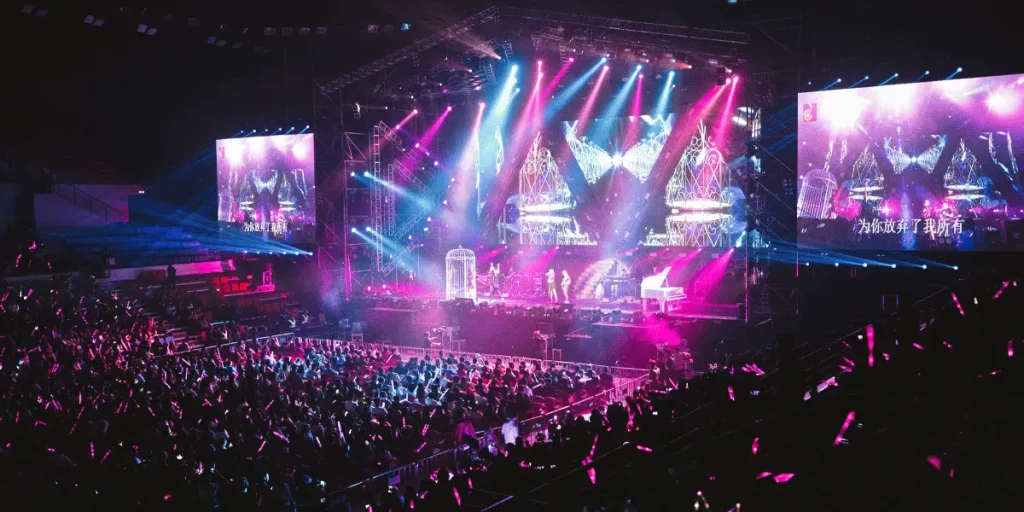
Promoting your music is an important part of becoming a successful EDM DJ. You can use social media platforms like instagram, Facebook and Twitter to promote your music and connect with fans. Playing live gigs is an important part of building your reputation as an EDM DJ. You can start by playing at local clubs or events and then work your way up to larger venues and festivals.
To promote your music and play live gigs. It’s important to focus on building a following and creating a strong online presence. You can promote your music and live gigs by submitting your tracks to online music platforms, radio stations, by networking with other DJs and producers in the industry. It’s also important to be proactive in seeking out live gigs and performance opportunities and to create a professional press kit to showcase your music and experience. By staying creative, authentic and engaged with your fans, you can build a successful career as a DJ and grow your following over time.
Best EDM Music Software

There are great software options available for producing EDM music, each with its own unique strengths and features. Some of the most popular software options for producing EDM music are Ableton Live, FL Studio, Logo Pro X and Cubase.
Ableton Live is a popular choice for many EDM producers because of its intuitive interface and powerful features. The software is designed for live performance and includes a range of tools for creating and manipulating sounds in real-time. FL Studio is another popular choice, known for its ease of use and comprehensive set of features. Logo Pro X is a powerful software option for Mac users, with a range of advanced features and tools for music production. Cubase is another popular choice, with a range of tools for recording, editing and mixing audio.
Ultimately, the best software for producing EDM music will depend on your own personal preference and needs. It’s a good idea to try out different software options and see which one works best for you. Many software companies offer free trials or demos, so you can test out the software before making a purchase.
Knowing about DJ Software and Hardware Equipment
DJ software and hardware equipment are essential tools for DJs and producers to create and perform music. DJ software is a digital audio workstation (DAW) that allows DJs to create and mix music using a computer. Some popular DJ software includes Serato, Traktor and Virtual DJ. DJ hardware equipment includes controllers, mixers, headphones and speakers. Controllers are used to control the software and include features like jog wheels, faders and knobs. Mixers are used to blend multiple audio sources and can include built-in effects and filters. Headphones are used to monitor the music and cue tracks, while speakers are used to amplify the sound for the audience. There are many different types of DJ software and hardware equipment available, each with its own unique features and capability.
Conclusion
To become an EDM DJ you will need to learn how to produce electronic DJ, music and perform live. You can start by learning the basics of music production using software like Ableton Live, Logic pro or FL Studio. Then you can experiment with different sounds and styles until you find your own unique sound. Once you have a few tracks, you can start sharing them online and try to get notice. You can also start playing gigs at local clubs or events to gain more experience and exposure. To become a successful EDM DJ, you will need to have a strong social media presence and a dedicated fan base. You can grow your fan base by engaging with your followers on social media, creating content that your fans will enjoy and collaborating with the other artist. Hope you know very well about how to become an EDM DJ.
FAQs
The amount of time it takes to become an EDM DJ varies depending on several factors, including your natural talent, dedication and the amount of time you can devote to learning and practicing. Some people may be able to learn the basics of music production and Djing in a few months. While others may take several years to master these skills. To become a successful EDM DJ you will need to be willing to put in a lot of time and effort to hone your craft and build a strong fan base.
Becoming an EDM DJ requires a lot of hard work and dedication. It can take years to develop the skills and knowledge necessary to create your own tracks and perform live sets. You’ll need to learn how to use digital audio workstations (DAWs), mixers and otherDJ equipment as well as understand the basics of music theory and composition. You’ll also need to develop your own unique sound and style which can take time and experimentation. It’s a challenging but rewarding career path for those who are passionate about music and willing to put in the work to succeed.
To share a career as a DJ, it’s important to focus on developing your skills and building a following. This can involve practicing your Djing and music production skills and creating your own tracks to share with others. You can also attend events and shows to get exposure and meet other DJs and producers in the industry. So, it’s helpful to make connections and build relationships with other people in the industry. Finally, it’s important to promote yourself and your music through social media, other channels and build a following of fans who are interested in your music. With hard work, dedication and a passion for music you can build a successful career as a DJ.
Electronic Dance Music (EDM) is a genre of music that is produced using electronic instruments such as synthesizers, drum machines and samplers. The music is characterised by a strong beat and repetitive rhythm and often features a wide range of sounds and effects. EDM has its roots in the disco and club scenes of the 1970s, 1980s and has evolved over time to include a wide range of sub-genres including house, techno trance and more. It has become increasingly popular in recent years with many DJs and producers achieving international success and performing at festivals and events around the world.The genre has a large and dedicated fan base, and is known for its high-energy performance and immersive experience. EDM is often played at clubs, festivals and has become a staple of the dance.
The origins of EDM can be trace back to the 1970s and 1980s. When electronic instruments and synthesisers first became widely available. During this time a number of artists began experimenting with electronic music, creating new sounds and styles that would eventually evolve into the genre we know today as EDM.
The term “EDM” itself didn’t come into widespread use until the late 2000s when the genre began to gain mainstream popularity. However, the roots of EDM can be trace back to the early days of electronic music, when artists like Kraftwerk, Giorgio Morodor and others were pushing the boundaries of what was possible with electronic instruments and technology.

